Top 10 Greatest Chinese Thinkers
Confucius – the founder of Confucianism, is the most famous Chinese thinker in the world. His philosophy has dominated China’s feudal society for about 2000 years. However besides Confucius, many prominent philosophers can be found in China’s long history. Here I compiled a list of the 10 greatest Chinese thinkers ever in history.
1. Laozi 老子
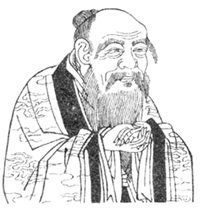
Laozi (6th-5th century BCE) was a great Chinese philosopher and is believed to be the founder of Taoism. Laozi advocated the “The Inaction Thought.” This is to say ” To do nothing is actually to do everything.” He believed that human beings must adhere to the laws of nature and should not demand too much from nature. Laozi and Confucius are the contemporary thinkers and Laozi is older than the latter. Confucius once visited Laozi and Laozi gave some precious advice to the younger one.
2. Confucius 孔子
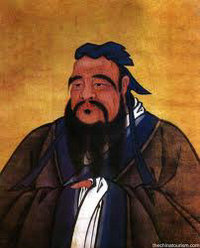
Confucius (551–479 BC) was the most important Chinese philosopher and thinker. His philosophy emphasized living peacefully and morally within the structures of society and loving for others. His philosophy have been playing dominant roles Chinese history and even mostly created the foundation for Chinese society today.
3. Zhuangzi 庄子
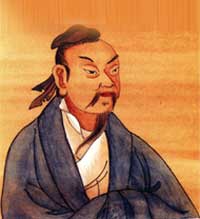
Zhuangzi (4th century BCE) was a great Taoist thinker during the Warring States Period (475-221 BC) after Laozi. He also believed in inaction, circulating the free realm in which “Heaven and individual exist together, and all things and individual become united.” He wrote the famous book – “Zhuangzi”, which expresses that life is limited and knowledge to be gained is unlimited.
4. Mencius 孟子
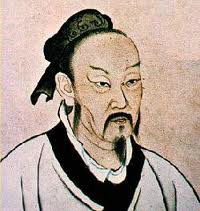
Mengzi (372 – 289 BCE), also called Mencius, was a Chinese philosopher, a follower of Confucius who mainly interpreted the ideas of Confuciusim. He wrote a famous philosophical work- Mencius , which mainly records his doings and sayings and the statements of goodness of human nature.
5. Xunzi 荀子
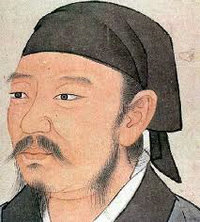
Xunzi (312–230 BC) was a Chinese Confucian philosopher during the Warring States Period (475-221 BC). Xunzi have opposite views with Mengzi, believing that man’s inborn tendencies must be restricted through education and ritual. He considered that ethical norms were created to rectify human beings.
6. Dong Zhongshu 董仲舒

Dong Zhongshu (179–104 BC) was a Chinese thinker in the Han Dynasty (206 BC–220 AD). He established the Confucianism in 136 BCE as the official political philosophy in imperial China.
7. Zhu Xi 朱熹
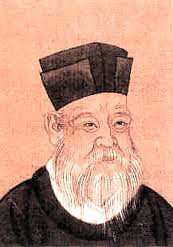
Zhu Xi (1130 – 1200) was a Confucian scholar during the Song Dynasty (960-1279). He was the most influential Neo-Confucian scholar in China. His Neo-Confucian thought dominated Chinese intellectual life over a long period of time. He assigned The Four Books as the main study material of Confucianism and emphasized on the investigation of things. He was considered the second most important thinker after Confucius in China.
8. Wang Shouren 王守仁
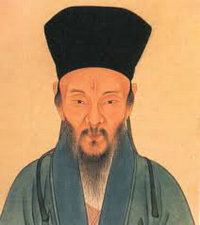
Wang Shouren (1472 -1529) was a philosopher in Ming Dynasty (1368–1644). He claimed that human’s mind and rationalism should be harmonized, and emphasized on the unity of knowing and doing, opposing the pure investigation of things.
9. Huang Zongxi 黄宗羲
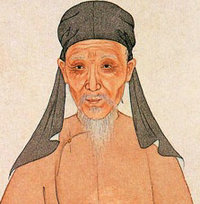
Huang Zongxi (1610 – 1695) was a Chinese thinker during the latter part of the Ming dynasty and the early part the Qing Dynasty. Huang was known for being one of the first Neo-Confucians to lay emphasis on the need for constitutional law.
10. Wang Fuzhi 王夫之
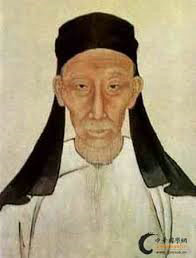
Wang Fuzhi (1619–1692) was a Chinese philosopher during the late Ming and early Qing dynasties. Wang Fuzhi established the system of Simple Materialism, believing that the world is material; material is primary and eternal.

